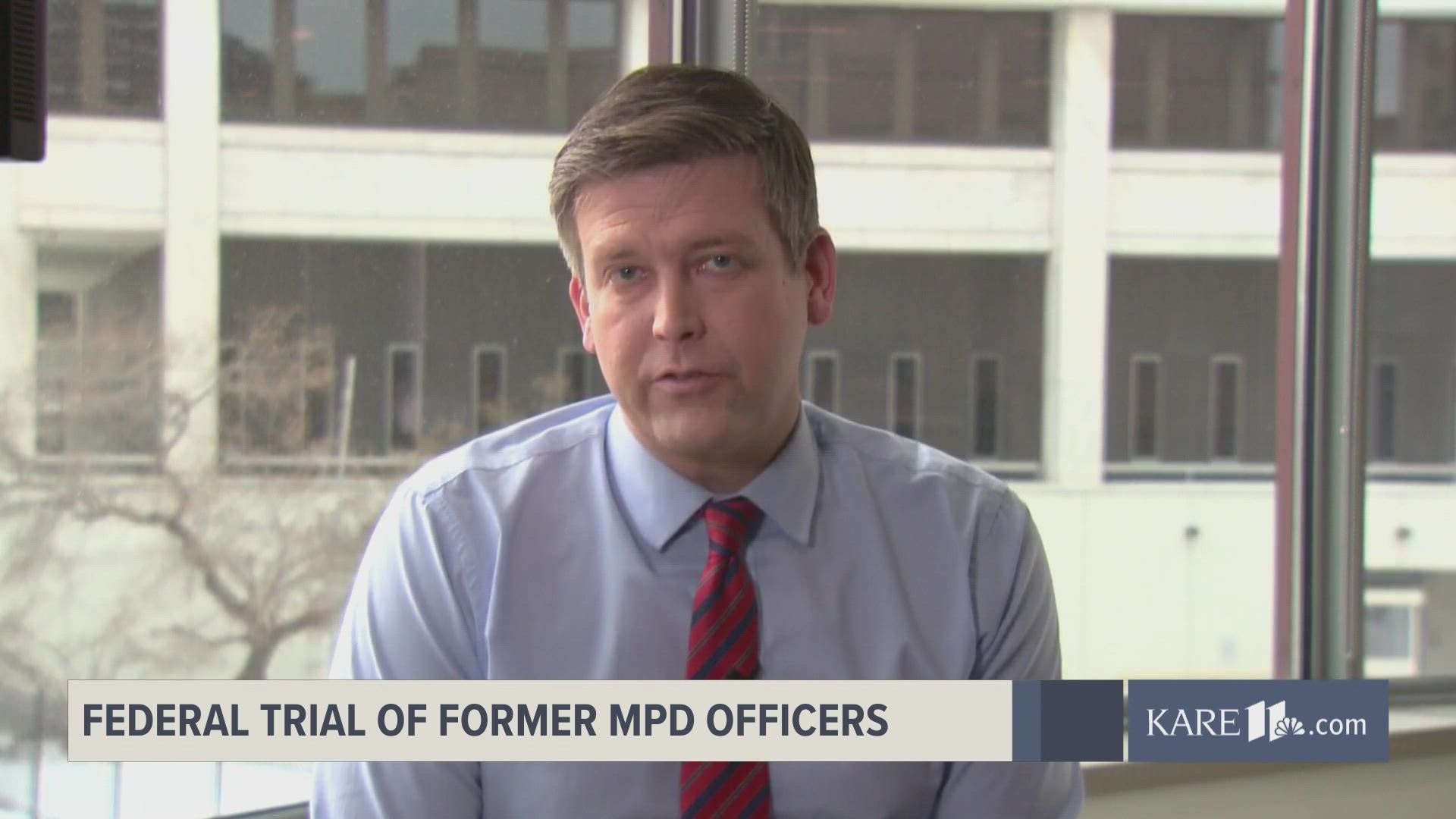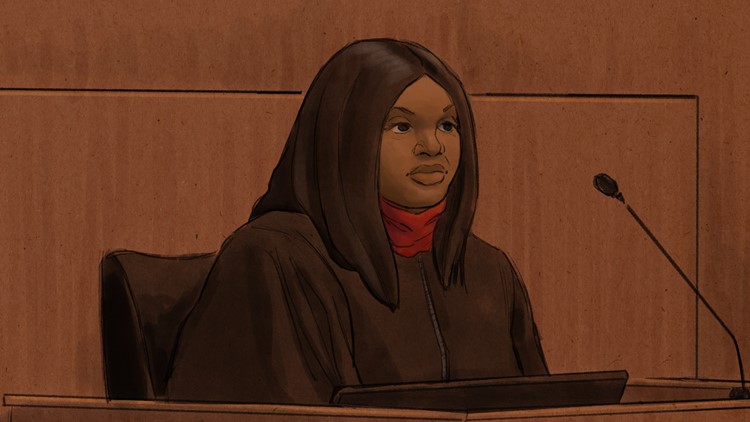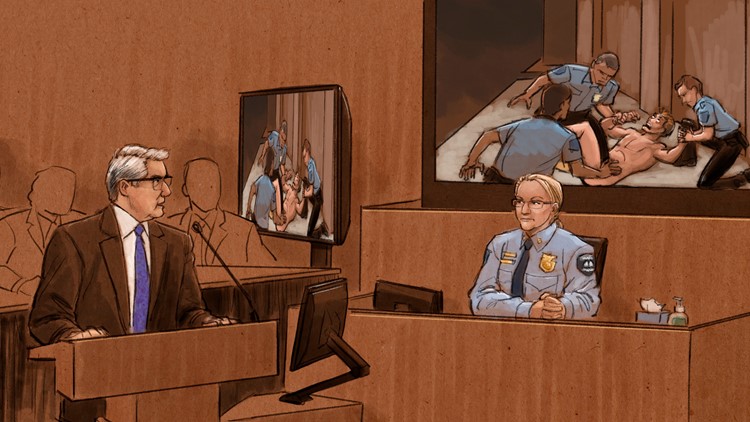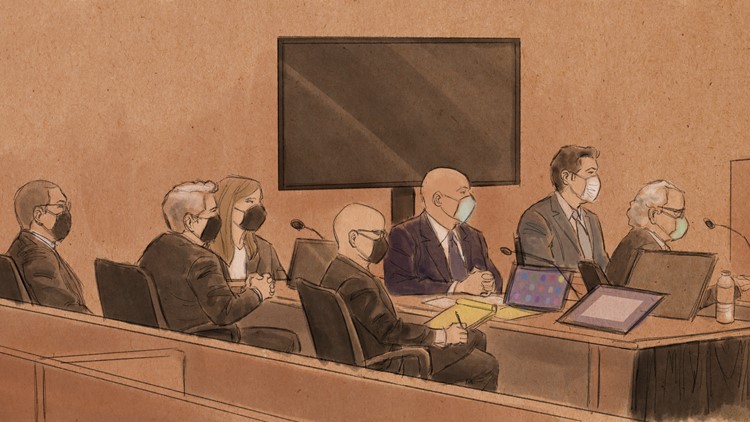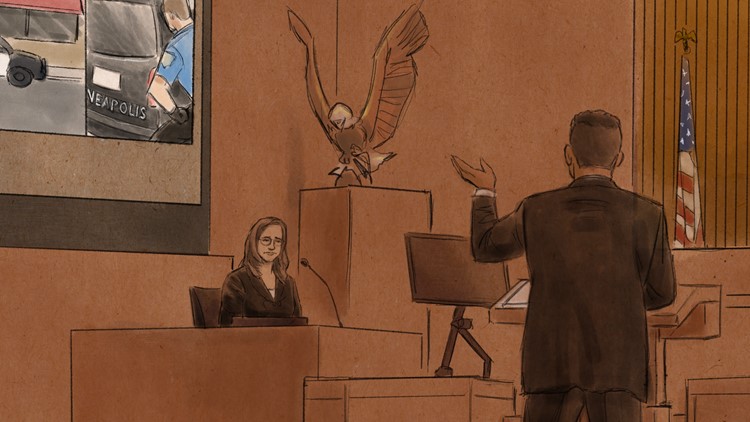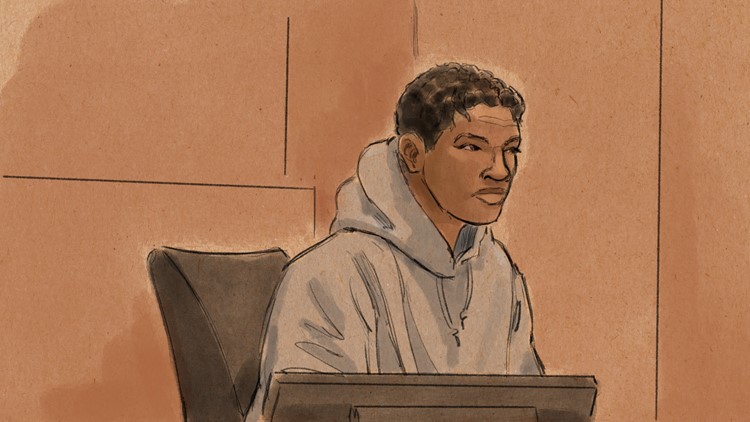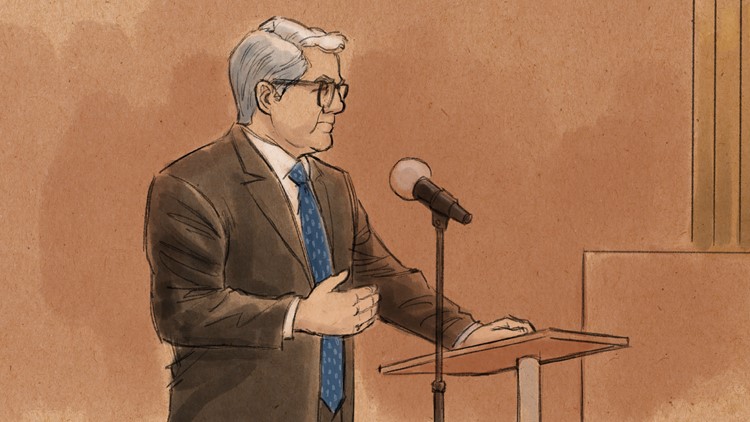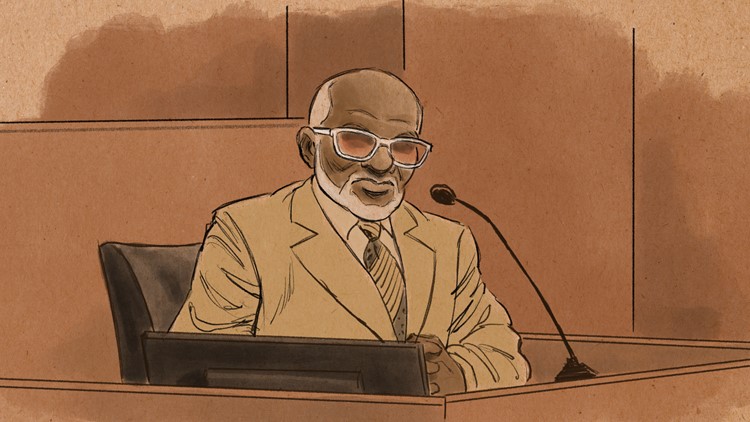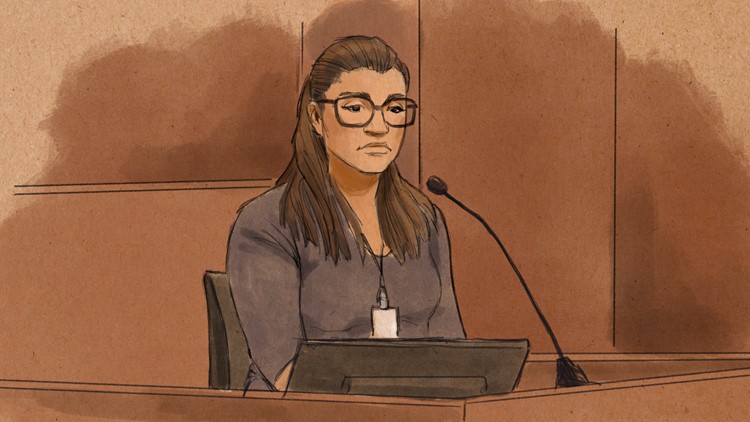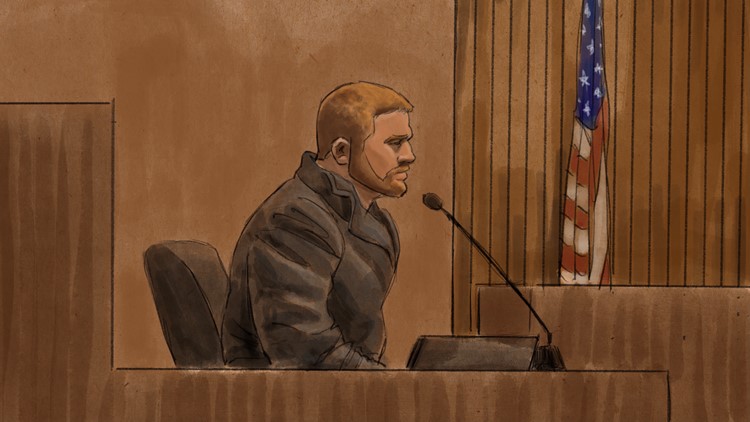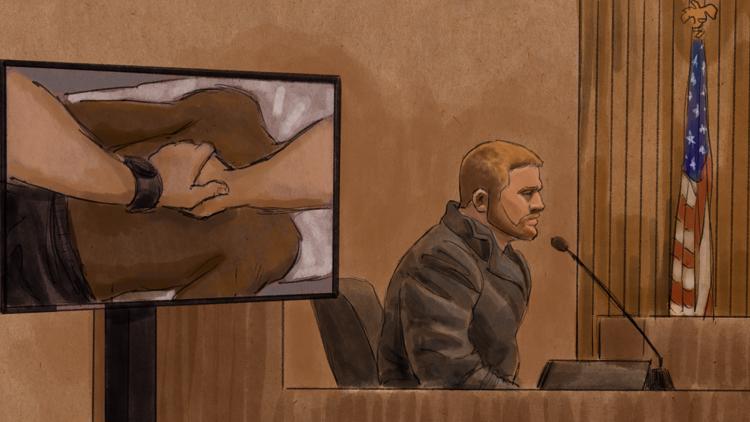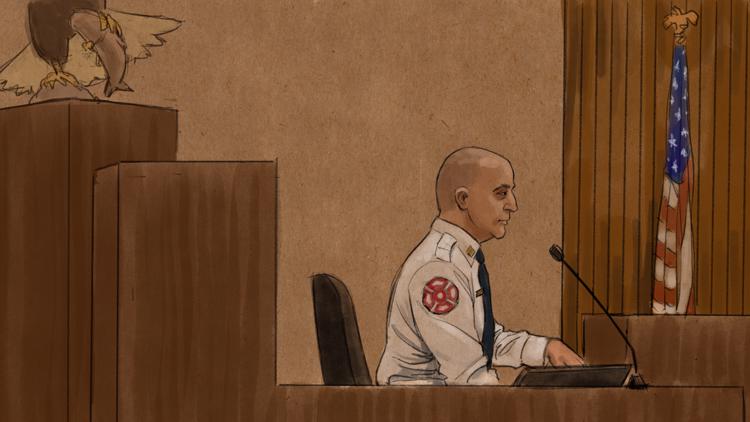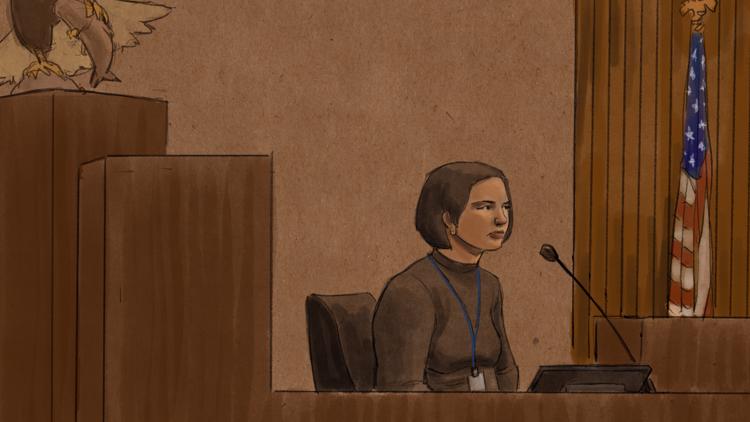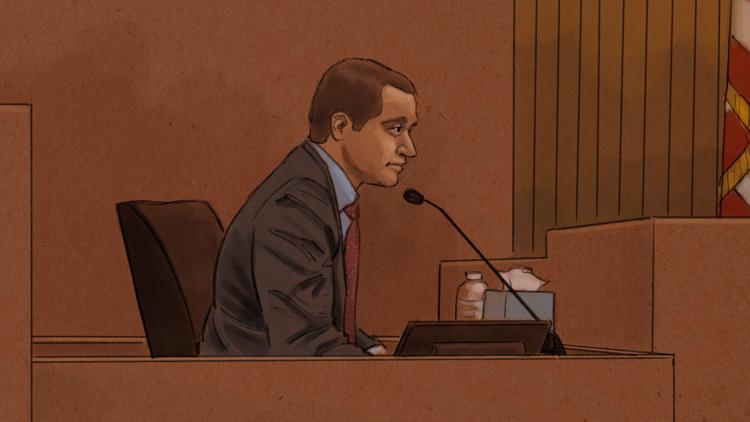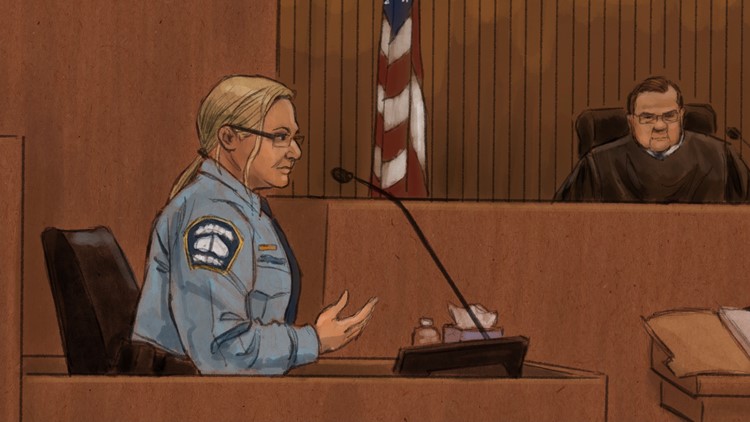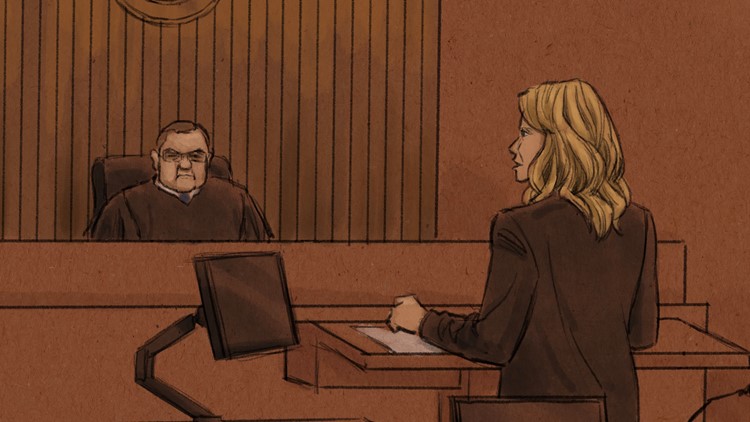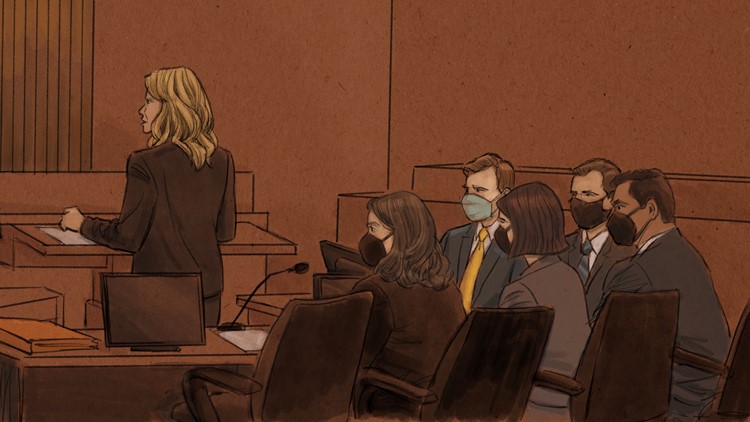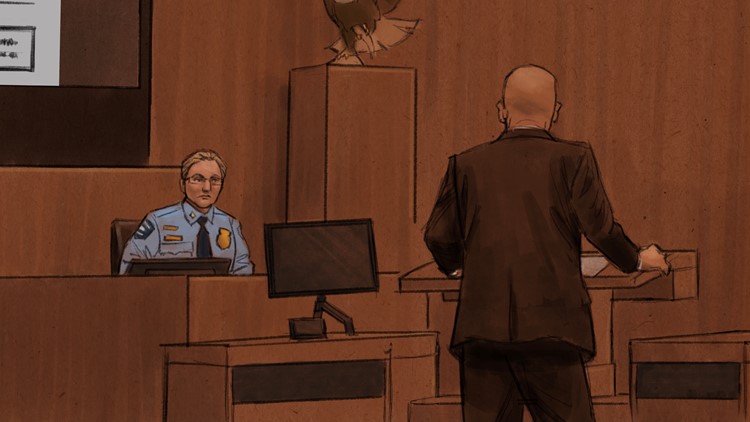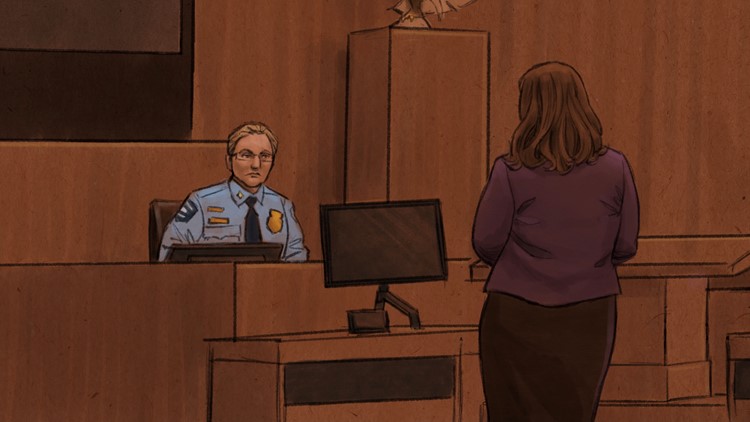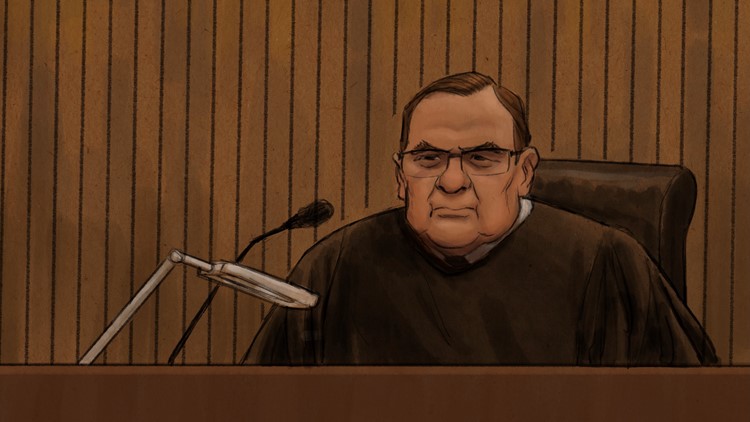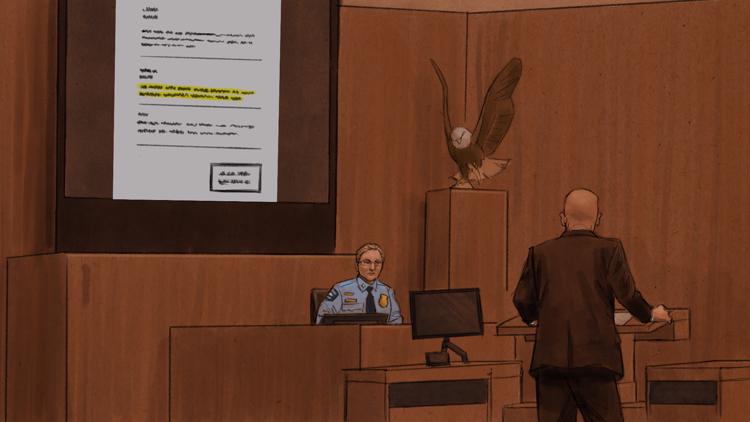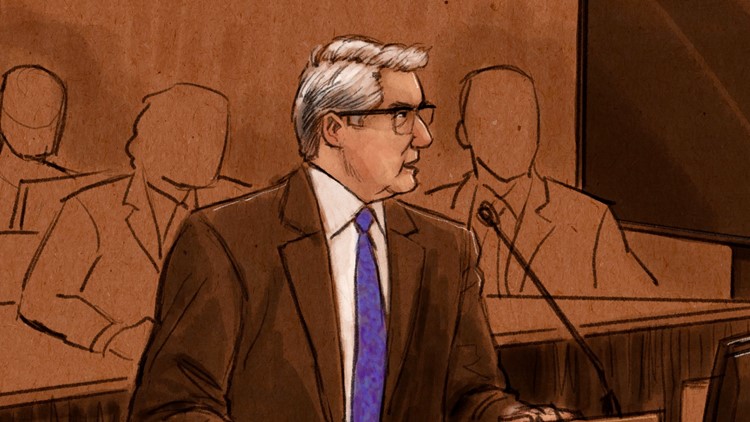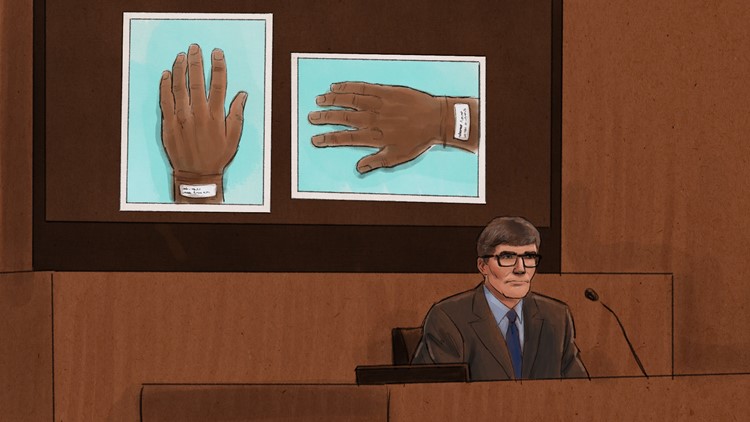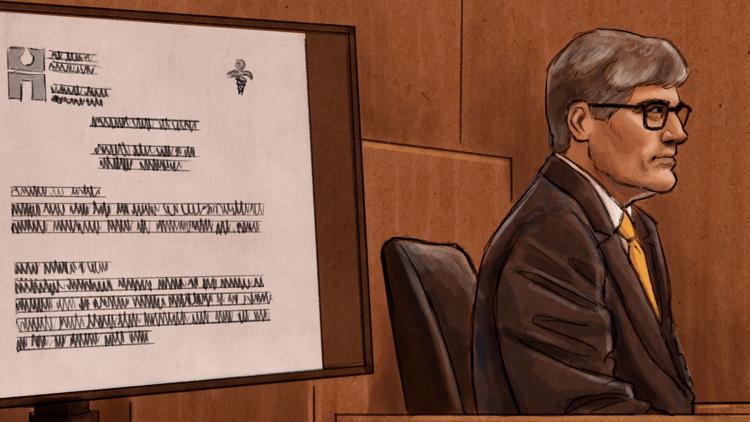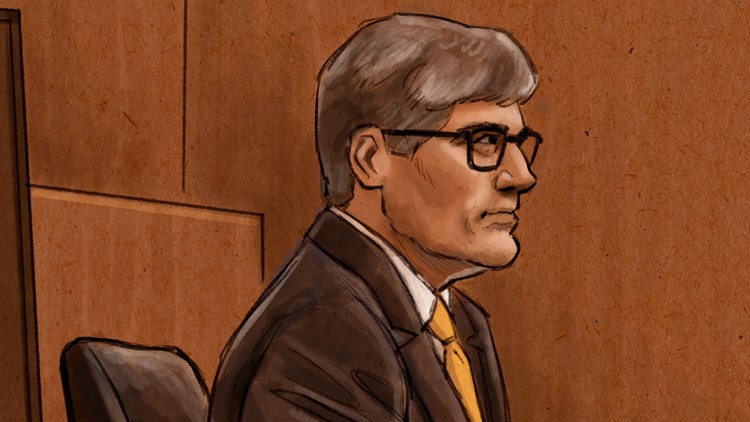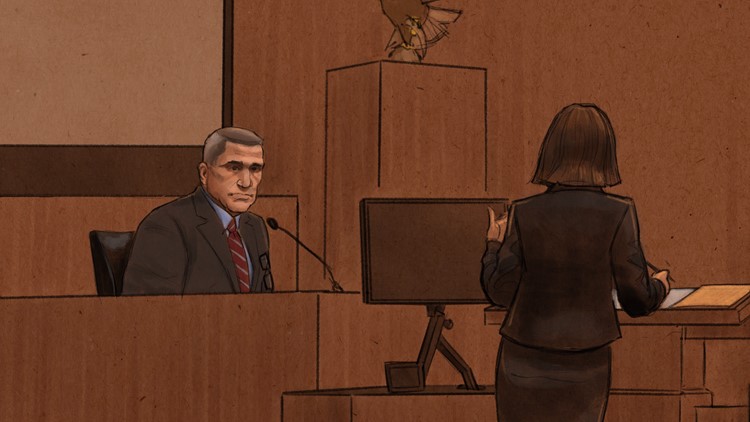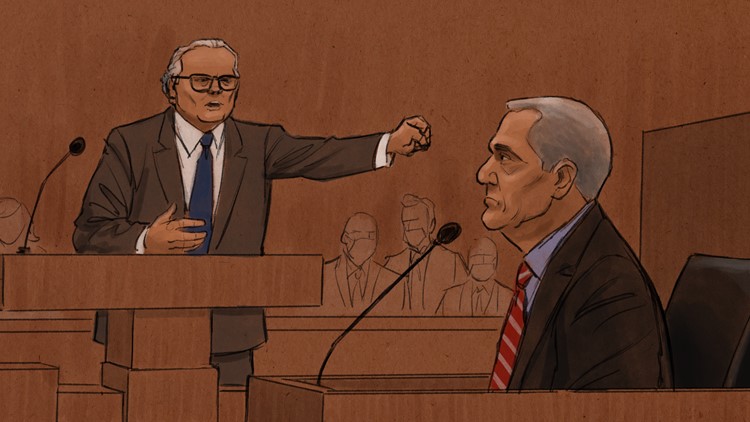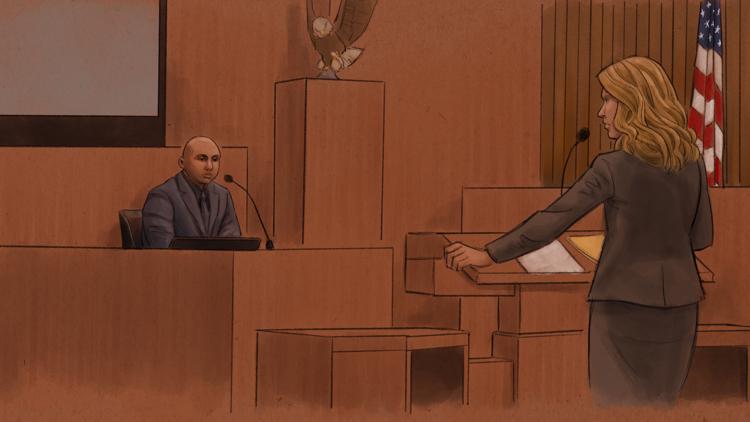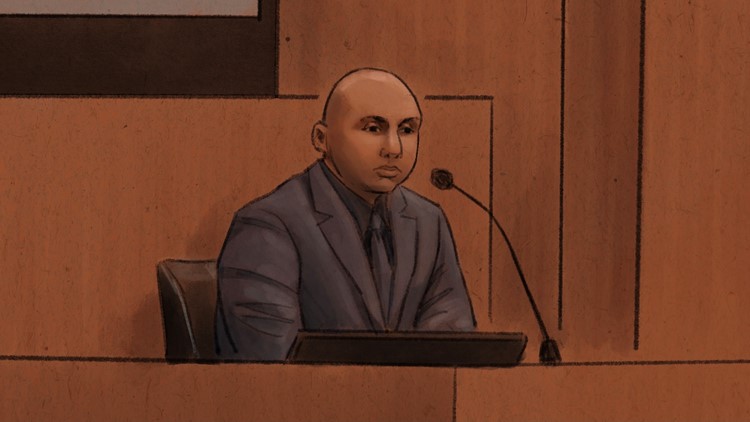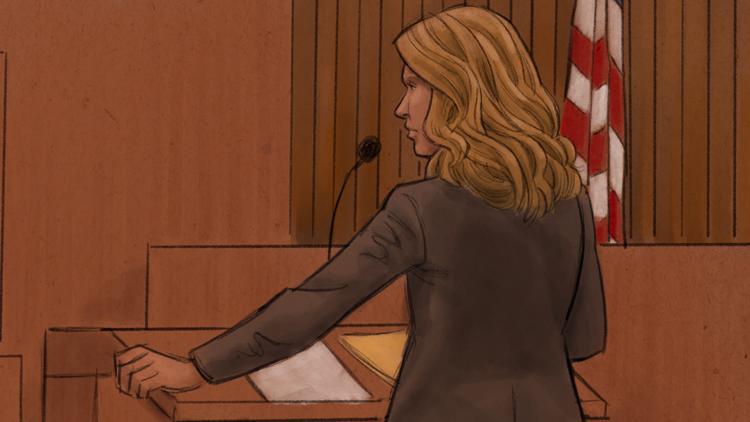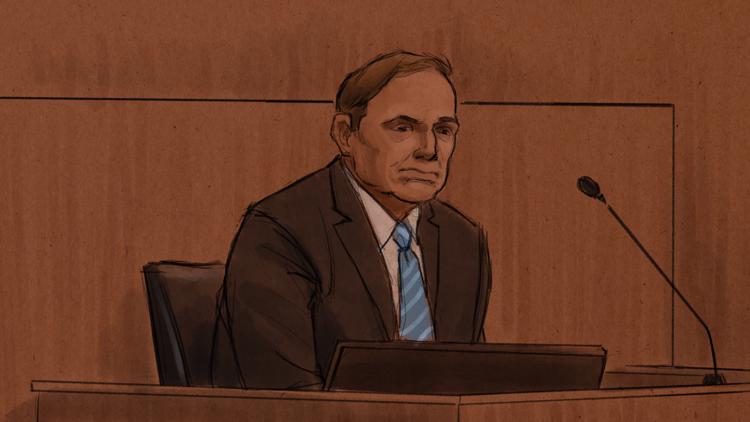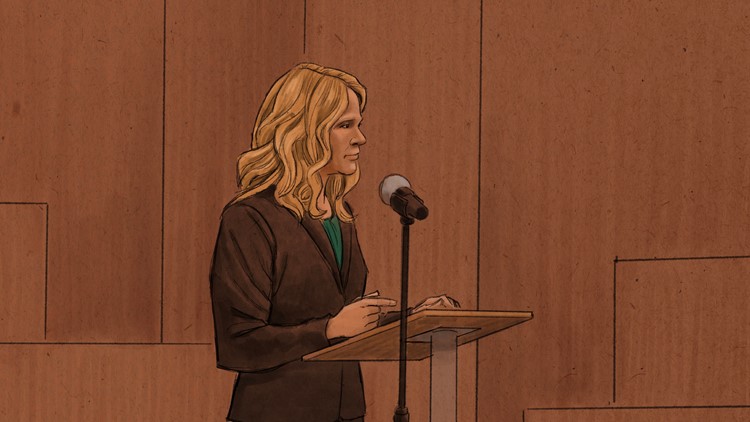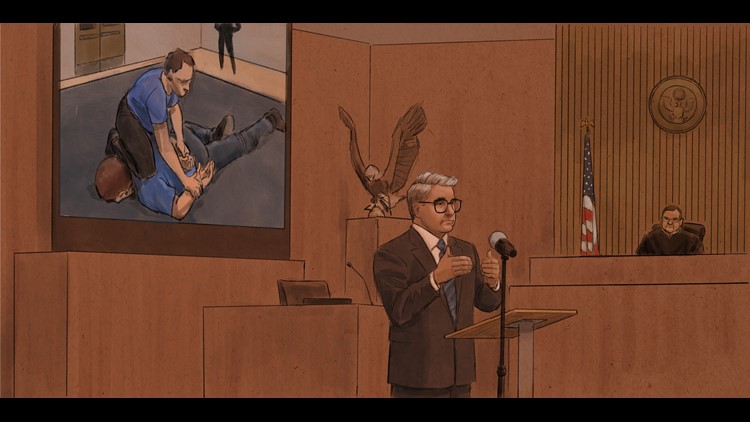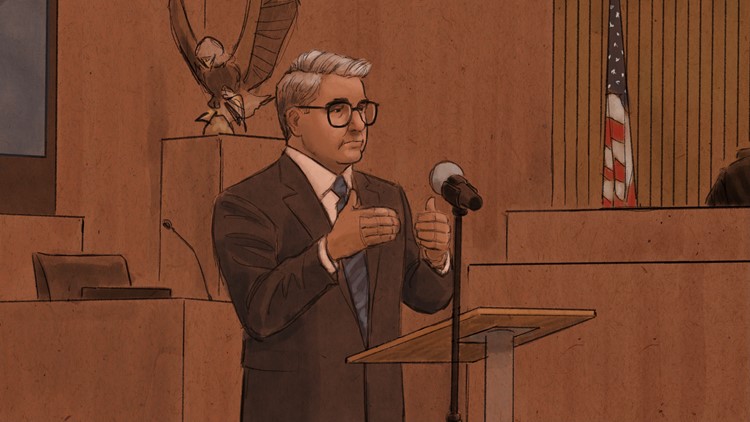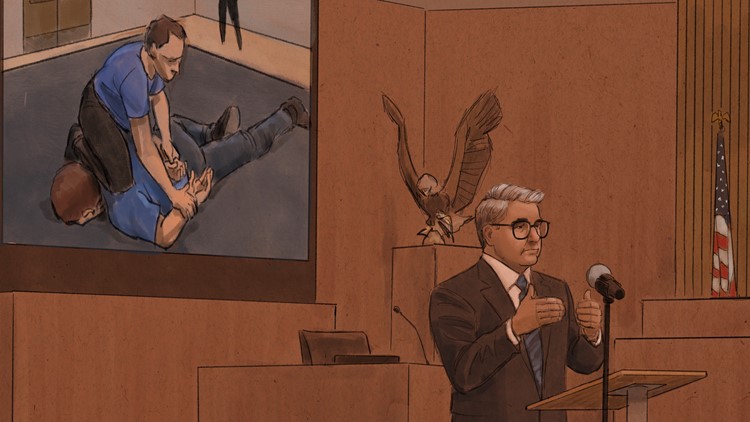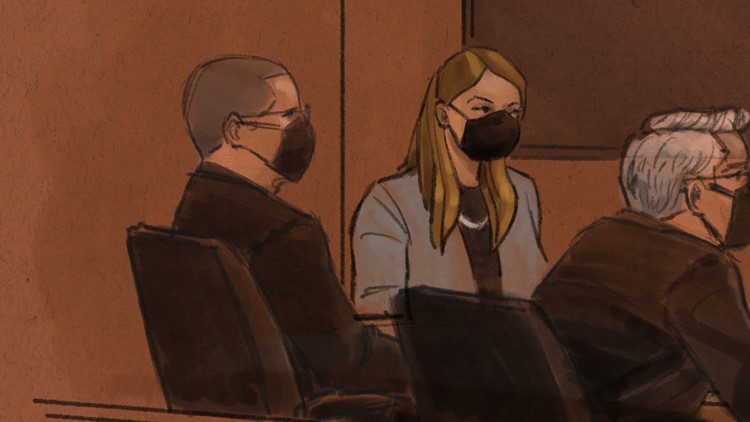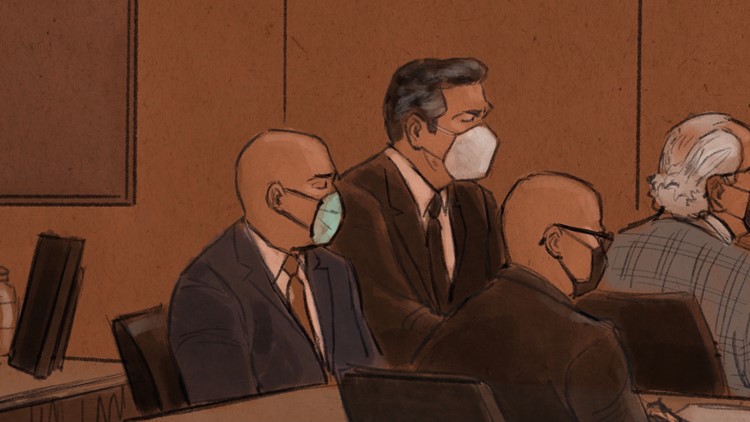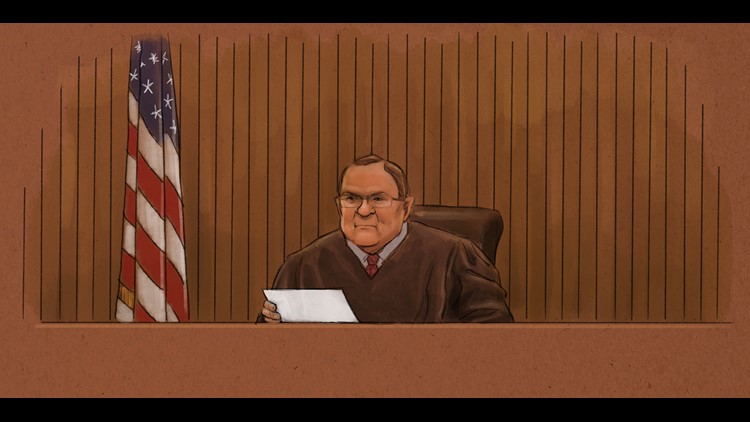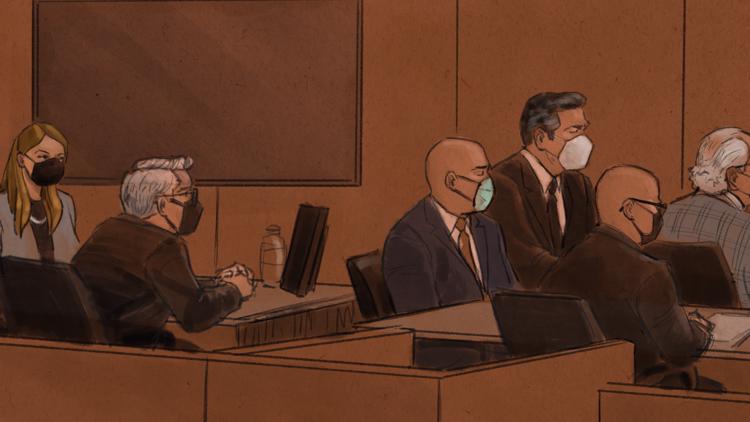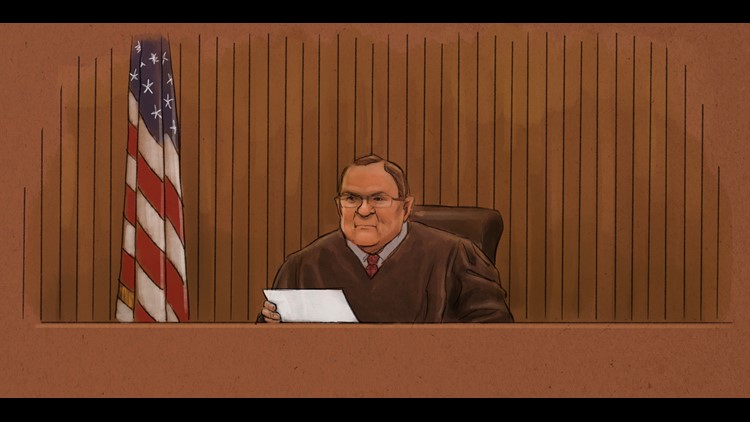ST PAUL, Minn. —
- Doctor who treated Floyd at hospital testifies about cause of death
- MPD inspector previously in charge of training testifies
- First responders testify about the timeline of rendering aid to Floyd
- Judge denies motion for mistrial by the defense
Prosecutors in the federal trial for three former Minneapolis police officers charged with violating George Floyd's rights the day of his murder continued to call witnesses Thursday morning.
J. Alexander Kueng, Thomas Lane and Tou Thao are charged with failing to provide Floyd with medical care as fellow officer Derek Chauvin knelt on Floyd's neck for more than nine minutes. Thao and Kueng face an additional count for failing to stop Chauvin, who was convicted of murder and manslaughter in state court last year.
Dr. Bradford Langenfeld, the ER physician who pronounced Floyd dead, took the witness stand, giving essentially the same testimony he gave in Chauvin's murder trial. Langenfeld testified that he believed Floyd died from a lack of oxygen, possibly from mechanical asphyxiation. He added that every minute that passed without CPR being performed, generally lessened the chance of survival 10-15%.
Inspector Katie Blackwell, another repeat witness, spent the majority of the day on the witness stand testifying about the training MPD officers receive, and how those policies are taught — including the duty to intervene. Blackwell read the policy to the jury, saying it's the duty of every officer to "either stop or attempt to stop another sworn employee when force is being inappropriately applied or no longer required."
Before the prosecution could launch into its next line of questioning, Judge Magnuson ended testimony early, saying a juror had to tend to a personal matter.
Testimony is expected to resume just after 9:30 Friday.
LIVE UPDATES:
3:45 p.m.
After a short recess, the state returned to its questioning of MPD inspector Katie Blackwell. The prosecution asked Blackwell about protocol pertaining to restraining a suspect and crisis intervention. Blackwell agreed that MPD policy requires officers to render aid to anyone in distress, whether that be with de-escalation tactics or administering medical assistance. Blackwell said the basic principle is making sure an arresting officer is providing the appropriate care to a person being restrained.
2 p.m.
Court came back from lunch recess with the prosecution’s next witness, Dr. Bradford Langenfeld. Langenfeld told the court he took the lead in an attempt to revive George Floyd when he arrived at the hospital on May 25, 2020.
Langenfeld said Floyd came to the hospital described to medical personnel as a man in his 30s suffering from cardiac arrest. Paramedics said when they arrived at the scene, Floyd did not appear to have a pulse and it was noted that no one on scene had initiated CPR before paramedics arrived. Langenfled said paramedics told him they had worked on Floyd for approximately 30 minutes to revive him before they arrived at the hospital.
The prosecution then asked Langenfeld for his medical opinion on how Floyd came to suffer from cardiac arrest. He said based on Floyd’s condition and details surrounding his encounter with MPD, he concluded the most likely scenario was that Floyd suffered from hypoxia, which is characterized by having low oxygen. Langenfeld said Floyd was in his care for about 30 minutes – with Floyd suffering from cardiac arrest for approximately one hour total – before declaring him dead.
The defense team’s cross examination of Langenfeld focused on his medical training as a physician in terms of assessing a patient. Both Paule and Gray asked Langenfeld about the possibility of Floyd suffering from excited delirium – a controversial diagnosis not recognized by the American Medical Association.
On redirect questioning, Langenfeld testified that based on the video footage he viewed in the months after treating Floyd, he did not believe Floyd was at the level of severe agitation characterized as excited delirium that could lead to cardiac arrest.
11:30 a.m.
The first witness to testify Thursday morning was Minneapolis Police Department Inspector Katie Blackwell, who also testified at Derek Chauvin's state trial last year. She's currently the 5th precinct inspector, but was the commander of the department's training division in May 2020, when George Floyd was killed.
According to KARE 11 reporter Lou Raguse, who's following the trial Thursday, prosecutors spent much of the morning reviewing the foundation of MPD training in an attempt to show the jury that officers are fully trained and expected to be self-sufficient by the time they finish.
Blackwell testified that the department teaches officers to use the lowest amount of force necessary and "once we gain compliance, the force stops."
Eventually prosecutors transitioned to questioning Inspector Blackwell on the MPD "Duty to Intervene" policy, something Raguse says is key to the case against the three former officers. Blackwell told jurors that "we have an obligation" to stop or attempt to stop another officer when force is being inappropriately applied or is no longer required.
Blackwell testified that the Duty to Intervene policy was adopted in 2016, and said "several" officers intervened in situations of force even before it became policy.
Just before lunch, federal attorneys addressed "maximal restraint technique," which is used to tether a person's feet to their waist while in prone position. Blackwell told the court when using that technique, a person being restrained needs to be rolled into side recovery position as soon as possible.
At that point Kueng's defense attorney Thomas Plunkett objected, saying maximal restraint technique wasn't even used on George Floyd. Judge Paul Magnuson sustained the objection.
The court announced that Blackwell will likely resume testifying Thursday following an interruption by another witness, who has limited availability to testify and will take the stand first thing after lunch break.
Derek Smith, a paramedic with Hennepin Healthcare, first took the stand for the prosecution. Smith testified that he could not locate a pulse when he checked George Floyd after Derek Chauvin had knelt on his neck for more than nine minutes. He told the court Floyd's pupils were large, suggesting he was already deceased.
Smith said officer Thomas Lane eventually joined him in the ambulance to help perform CPR. When Smith asked what happened, Lane told him about the about forgery, said Floyd was resisting and "they basically restrained him until you guys got here."
Jeremy Norton, a supervisor with the Minneapolis Fire Department who was at 38th and Chicago on May 25, took the stand next.
Norton said fire crews arrived approximately one minute and 30 seconds after getting the call for assistance. He said they received the call around 8:30 p.m. for a Code 2, meaning "assist with a mouth injury," but within a few minutes that code was upgraded.
Norton said he had little information about what was actually happening at the scene when he arrived and heard people saying the officers had killed a man.
Norton testified he immediately reported that there had been a death in police custody after speaking with the officers on scene, and that an off-duty firefighter had been a witness. He said had fire crews arrived right away, they would not have waited until an ambulance arrived to do CPR on Floyd.
Genevieve Hansen, the off-duty firefighter that Norton spoke to who said she witnessed Floyd's murder was next on the stand and told the court she was out for a walk when she noticed the commotion in front of Cup Foods, and eventually saw a man, later identified as George Floyd, being held down by the officers.
She said she approached Tou Thao and introduced herself as a firefighter, and said Thao told her if she was really a Minneapolis firefighter she would know better than to get involved.
She told the courtroom she focused on Thao while recording the scene on her phone because she thought he was "in the way of George Floyd's medical attention."
Robert Paule, Tou Thao's defense attorney, asked Hansen if she was aware of what led up to Floyd being in that position on the ground, or if she was aware of what the other officers who were out of her sight were doing. She said no.
The jury was dismissed for the day after Hansen's testimony on the stand. The defense team then called for a mistrial over questions from prosecutors that they say go against pre-trial rules.
Judge Magnuson denied the request, but warned of continued use of "leading" questions.

